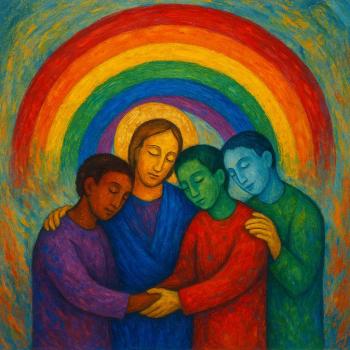
Lectio: Reading the Bible
Reading the bible or any sacred text is an act of devotion and contributes to the spiritual practice of devotion. Reading sacred texts as a spiritual practice of devotion involves engaging deeply with the text through methods like lectio divina, which includes reading, meditation, prayer, and contemplation. This practice helps individuals connect with the divine and fosters spiritual growth and transformation.
As a practice devotion is a spiritual discipline that involves regular rituals or actions aimed at connecting with a specific spirit, deity, or spiritual power. It can include activities like prayer, meditation, and acts of service, fostering a deeper relationship with the divine and enhancing personal spiritual growth.
The Spiritual Practice of Devotion
When we live a devotional life, we live a life that is done so in the presence of God. God, like vinegar, permeates food, permeates all that we encounter. God is an insistent presence in our lives and the lives of those around us. God’s insistence is a call to respond to the needs of the other, especially the marginalized and suffering. It’s a call to enact justice and love, not because of a divine command, but because of an ethical imperative that arises from the encounter with the other. It is an insistence to do the impossible.
Devotional practice is how we access and become fully aware of God’s insistence. Lectio, or engaging with our sacred texts is one vehicle to this process.
Deep Ecumenism – How Other Traditions Engage with Their Sacred Scripture
I got into a lot of trouble as a pastor by referencing other sacred texts other than the Bible and the authors that our publishing house advertised. When you think of the way information was passed around in ancient times, while much was written down, much more was communicated orally. If we consider Jesus in first-century Palestine, we need to consider the potential influences in his life. We have Greek thought, Roman thought, Jewish thought and folk and mystical beliefs would have all been present.
In our larger global context today, I teach my students in my World Religions class that they are going to bump into many traditions in their professional life, especially in a city like Erie, PA where we have a thriving migrant community. In my lifetime, I have been exposed to all the Asian traditions, all the Abrahamic traditions and Hinduism and Buddhism. In my travels, I have bumped into Sufis, Neo-Pagan adherents and Bahai adherents. All of whom have taught me something about how to live out my faith.
When we turn to these traditions and we examine how they engage their sacred texts, we will find that they engage in ways that are similar to our own.
Whether through the rhythmic chants of Hindu mantras, the meditative recitations of Buddhist sutras, or the profound reflections upon the Quran in Islamic practice, each tradition offers a unique approach to engaging with their sacred scriptures, enriching our collective understanding of devotion. This intercultural exploration reveals that, despite our diverse religious landscapes, the heart of devotional practice remains a shared endeavor to connect with the sacred. By appreciating these varied expressions, we can deepen our own spiritual practices and foster a greater sense of empathy and unity across different faith communities.
Wesley – The Bible as Sacred Text
Turning to my Wesleyan tradition, Scripture is considered one of our cornerstones which orients how we interpret our faith. John Wesley, the founder of the Methodist movement, had a profound emphasis on the importance of reading and interpreting the Bible. He is famous for his decree, that he is man of one book. “Let me be homo unius libri,” says Wesley, with Latin flare. His approach to Scripture can be summarized through several key points:
Centrality of Scripture: Wesley considered the Bible the main source of Christian belief and practice, viewing it as God’s inspired word essential for spiritual growth.
Practical Reading: He urged reading the Bible for practical application in daily life, letting it guide actions, ethics, and one’s relationship with God.
Use of Reason: Wesley supported using reason alongside Scripture, believing human experience aids in understanding its meaning.
The Quadrilateral: Known for the “Wesleyan Quadrilateral,” he emphasized Scripture, tradition, reason, and experience in theological reflection, with Scripture as the primary authority.
Regular Study: He stressed regular, systematic Bible reading, promoting daily engagement with methods like the “Wesleyan Bible Study” for deeper insight.
Community Interpretation: Wesley valued interpreting the Bible within a Christian community, encouraging group discussions for communal understanding.
Holiness and Transformation: He saw the Bible as a means to personal holiness and transformation, helping individuals grow in faith and Christ-likeness through its application.
What does this mean in light of what I brought light to above regarding engaging in deep ecumenism and seeing what other traditions bring us? For Wesleyans, we start with the bible first. “By homo unius libri, Wesley meant he regards no book comparatively but the Bible. Scripture is the first book of importance, but not the only important book.”
Being a student and now a teacher for several years of world religions, it is amazing to me to see how similar all the worlds’ traditions and how often they magnify my understanding of scripture. This morning, I was listening to a podcast that was comparing the work of Alfred North Whitehead and the Sufi mystic, Ibn Arabi. Something that learned from own Sufi teacher a few years ago were the names of God that Muslims consider important in their ontology. In this podcast, this conversation was again brought up and I found myself having a very deep appreciation for God and how I represent God.
To close this section, John Wesley’s approach to reading the Bible was holistic, integrating personal devotion, communal interpretation, and practical application, all aimed at fostering a deeper relationship with God and a more faithful Christian life. We are communal people; we do not live in bubbles of influence. As we are in a serious meaning crisis right now, we would do well to reach across the aisle and let all who are in our sphere of influence to teach us, even if they do not come from the same tradition as us.
Conclusion
To close this discussion, let us reflect. Devotion in its many forms, whether drawn from the rich traditions of Wesleyan scripture study or the diverse practices of global faiths, calls us to transcend our boundaries and embrace a holistic spiritual discipline that honors both our own heritage and the wisdom of others. Spiritual maturity is marked by one’s ability to step outside of their tradition to move to a place of owned faith. To be faithful or to be devoted is an active process.
It is through this intricate tapestry of devotional practices that we become fully aware of the divine presence permeating our lives, urging us to act with compassion, pursue justice, and deepen our understanding of the sacred. By engaging with various traditions and integrating their insights, we cultivate a more profound and inclusive spirituality that nurtures our personal growth and fosters a communal sense of unity and empathy in our shared journey toward the divine.













